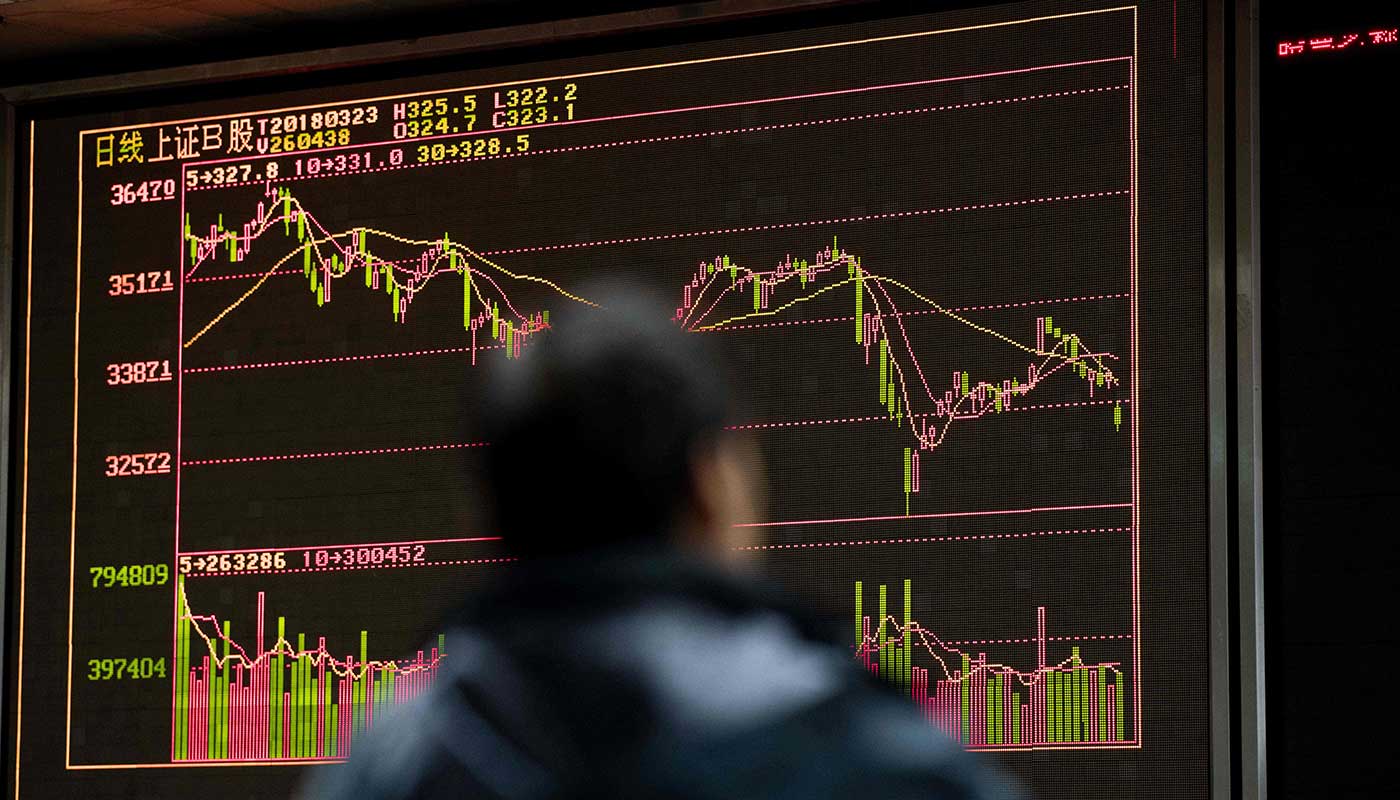Stocks plummet as China reveals plans to impose tariffs on US
World markets tumble on fears of trade war between US and China

A free daily email with the biggest news stories of the day – and the best features from TheWeek.com
You are now subscribed
Your newsletter sign-up was successful
China has announced plans to raise tariffs on $3 billion worth of US goods, just hours after Donald Trump directed US trade representative to level tariffs on around $50 billion worth of Chinese imports to the US.
CNN says that “despite the timing” of the announcement, China has not labelled the measures a “direct response to Thursday's broadside from the Trump administration”.
China has compiled a list of 120 products, The Washington Post reports, “including fresh fruit and wine”, that it intends to impose 15% tariffs on unless the two countries can resolve their trade differences “within a stipulated time”.
The Week
Escape your echo chamber. Get the facts behind the news, plus analysis from multiple perspectives.

Sign up for The Week's Free Newsletters
From our morning news briefing to a weekly Good News Newsletter, get the best of The Week delivered directly to your inbox.
From our morning news briefing to a weekly Good News Newsletter, get the best of The Week delivered directly to your inbox.
Further tariffs of 25% on other products, such as pork and aluminium, may also be imposed once China has evaluated the impact of recent US measures.
As one of the biggest buyers of US crops in the world, it could chose to target soybeans or sorghum imports with new tariffs, or buy more from countries such as Brazil and Argentina.
China’s state tabloid, the Global Times, said in an editorial this week: “If China halves the proportion of the US soybean imports, it will not have any major impact on China, but the US bean farmers will complain. They were mostly Trump supporters. Let them confront Trump.”
Another area China could exploit is its position as a major market for the US’s single largest exporter, Boeing. The authorities could instruct Chinese airlines to place more orders for rival Airbus planes in the future, which could make Boeing “vulnerable in the long term”, says CNN.
A free daily email with the biggest news stories of the day – and the best features from TheWeek.com
The option of last resort, which could have huge consequences for the US and global economy, would be for China to cut some of its US debt holdings. It is currently the biggest creditor to the US and owns more US government bonds than any other country, giving it considerable bargaining power if Trump decides to embark on a full-scale trade war.
China has repeatedly stated its desire to avoid that scenario, but in response to this week’s escalation, its ministry of commerce said the country “will certainly take all necessary measures to resolutely defend its legitimate rights and interests”.
Trump’s announcement yesterday and China’s reaction today have sent stock markets tumbling around the globe, as fears of a full-blown trade war between the world’s two largest economies grow.
-
 How to Get to Heaven from Belfast: a ‘highly entertaining ride’
How to Get to Heaven from Belfast: a ‘highly entertaining ride’The Week Recommends Mystery-comedy from the creator of Derry Girls should be ‘your new binge-watch’
-
 The 8 best TV shows of the 1960s
The 8 best TV shows of the 1960sThe standout shows of this decade take viewers from outer space to the Wild West
-
 Microdramas are booming
Microdramas are boomingUnder the radar Scroll to watch a whole movie
-
 Currencies: Why Trump wants a weak dollar
Currencies: Why Trump wants a weak dollarFeature The dollar has fallen 12% since Trump took office
-
 TikTok: New owners, same risks
TikTok: New owners, same risksFeature What are Larry Ellison’s plans for TikTok US?
-
 Trump wants a weaker dollar, but economists aren’t so sure
Trump wants a weaker dollar, but economists aren’t so sureTalking Points A weaker dollar can make imports more expensive but also boost gold
-
 Leadership: A conspicuous silence from CEOs
Leadership: A conspicuous silence from CEOsFeature CEOs were more vocal during Trump’s first term
-
 The end for central bank independence?
The end for central bank independence?The Explainer Trump’s war on the US Federal Reserve comes at a moment of global weakening in central bank authority
-
 Can Trump make single-family homes affordable by banning big investors?
Can Trump make single-family homes affordable by banning big investors?Talking Points Wall Street takes the blame
-
 Phish food for thought: Ben & Jerry’s political turmoil
Phish food for thought: Ben & Jerry’s political turmoilIn the Spotlight War of words over brand activism threatens to ‘overshadow’ the big ice cream deal
-
 What a rising gold price says about the global economy
What a rising gold price says about the global economyThe Explainer Institutions, central banks and speculators drive record surge amid ‘loss of trust’ in bond markets and US dollar